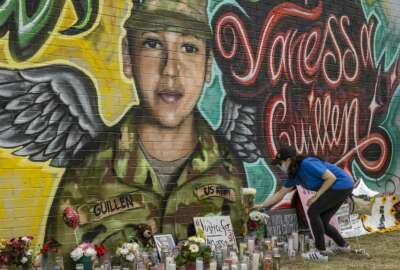The Army is moving toward a more compassionate view of soldiers who do not show up for duty by assuming they are missing and not jumping toward the disciplinary absent without leave status.
The policy change, which will come out in the next few weeks, is part of the Army’s shift to prioritize its people more and puts a punctuation on a summer where multiple soldiers were found dead after they didn’t report to duty.
Army Chief of Staff Gen. James McConville said AWOL status carries a connotation that a soldier is purposely skipping work, when in reality that person could be in serious danger.
“We found that there was some confusion with the AWOL policy; basically we want to make sure that when someone is not present for duty, the assumption is that they are missing and not AWOL,” McConville told reporters Thursday. “The policy we had in place was somewhat confusing for some of our commanders.”
“We wouldn’t leave soldiers behind in combat and we don’t want to leave them behind in garrison,” he added.
Army Secretary Ryan McCarthy said the change will make the policy much tighter by ensuring everyone’s mindset is focused on finding a soldier rather than thinking of them in a disciplinary fashion.
Currently, soldiers who are missing are considered AWOL for 30 days and then are deemed deserters.
The policy change came after working closely with families to improve communication between leaders and soldiers about mental health and other issues.
Army suicides and sexual assaults are at high levels and have increased over the past few years. This summer, multiple soldiers were found dead at Ft. Hood in Texas.
The most high profile of those cases was Spec. Vanessa Guillen. She was sexually harassed and then murdered while stationed at Ft. Hood.
“Spec. Vanessa Guillen really affected all of us. Incredible soldier. We know her family and I think she touched every one of us. What happened to her was horrific,” McConville said. “What we’re putting in place is basically a missing category, because that’s really was what happened to Vanessa Guillen; she was not absent without leave. But she wasn’t present for duty either. She was missing. We want to have a category that’s clear and unequivocal, that if you’re not present for duty, you’re missing. Then the intent is for that unit, and for the Army, to be looking for that soldier.”
Copyright
© 2024 Federal News Network. All rights reserved. This website is not intended for users located within the European Economic Area.
